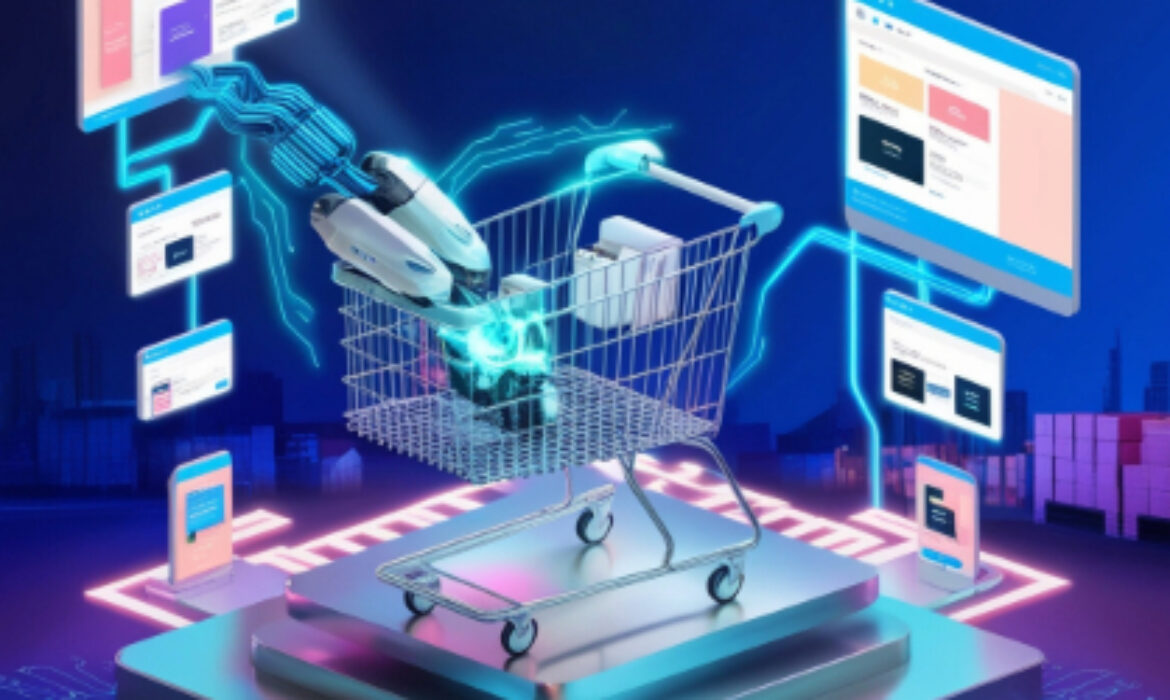The Evolution of Technology and AI: From Origins to Present Day
Could the journey of technology be considered remarkable, as it drastically changes our interactions with the world? Early milestones like the printing press and telephone laid the groundwork for communication. A pivotal change occurred in the late 20th century with the emergence of the internet, which revolutionized information access and shopping. As e-commerce emerged, businesses began to leverage digital tools to reach wider audiences. This evolution paved the way for AI to transform retail and consumer interactions.
Today, AI leads e-commerce innovation by enhancing personalized shopping and inventory management. Retailers use machine learning algorithms and data analytics for tailored recommendations, improving customer satisfaction and sales. AI-powered chatbots provide instant customer support while automating routine tasks. Furthermore, predictive analytics enable retailers to optimize supply chains and maintain product availability. The partnership between technology and AI will continue to advance the retail sector and enrich the online shopping experience.
How AI is Transforming Workflows in E-commerce Companies
The integration of AI in e-commerce is revolutionizing daily operations, creating efficiencies that result in cost savings, operational accuracy, and an enhanced customer experience. Here’s an overview of the key ways AI is reshaping workflows:
1. Streamlined Customer Support
AI-driven chatbots and virtual assistants are now equipped to handle a large volume of customer inquiries 24/7. By efficiently managing common questions, providing product recommendations, and offering tracking information instantly, AI alleviates the burden on human agents. This enables customer service teams to dedicate their efforts to more complex or sensitive issues that require a personal touch, ultimately improving the customer experience and boosting satisfaction through quicker, more efficient responses.
2. Personalized Shopping Experiences
AI algorithms analyze various customer data—such as browsing history, previous purchases, and time spent on different pages—to generate highly personalized product recommendations. This targeted strategy not only elevates conversion rates but also nurtures a more significant connection between customers and the brand. When shoppers encounter products that align closely with their preferences, it reinforces their loyalty to the brand and encourages repeat purchases.
3. Inventory and Demand Forecasting
AI-powered forecasting tools enable e-commerce companies to maintain optimal stock levels by predicting demand based on seasonal trends, consumer behavior, and various external influences. This proactive method helps prevent overstocking or stockouts, minimizing waste and reducing storage costs. By ensuring that products are available when needed, companies enhance operational efficiency and meet customer expectations for swift and reliable delivery.
4. Enhanced Marketing Precision
AI-driven marketing strategies leverage deep insights into customer preferences and behaviors. By accurately segmenting customers and determining the ideal timing, channel, and message, AI enables marketers to create campaigns that are more likely to engage effectively. This heightened precision maximizes return on investment (ROI), ensuring that marketing budgets are utilized efficiently and that customers receive promotions tailored to their interests, thereby increasing engagement and brand loyalty.
5. Fraud Detection and Security
Utilizing advanced algorithms, AI systems can monitor and identify suspicious activities, such as unusual spending patterns or irregular login locations. By flagging potential fraud in real-time, AI safeguards both customer data and company assets, ensuring a secure shopping experience. Enhanced security fosters trust between customers and the company, as shoppers feel confident that their information is protected, which in turn cultivates loyalty and reduces the risk of reputational harm.
The influence of AI on e-commerce workflows is substantial, offering automation and predictive insights that empower companies to remain competitive, improve customer satisfaction, and boost operational efficiency.
Key Adjustments in Foundation Models for AI Integration
To integrate AI effectively into existing processes, key adjustments to foundation models are essential. These models should be made more adaptable and modular, allowing organizations to customize AI solutions to fit specific needs without overhauling their infrastructure. Enhancing interpretability is also crucial, as stakeholders need to understand how AI influences decision-making, fostering trust and accountability in AI applications.
Additionally, increasing the diversity of training data in foundation models is vital to ensure reliable performance and minimize bias. Training AI systems on comprehensive datasets that represent various demographics leads to outputs that align more closely with real-world scenarios. Ongoing fine-tuning and retraining of models are necessary to keep pace with changing business environments. By focusing on these adjustments, organizations can optimize processes and drive innovation through AI integration.
AI: Personalizing Shopping Experiences at Scale
AI is transforming the retail sector by personalizing shopping experiences on a large scale, effectively addressing individual consumer preferences. By analyzing extensive data sets, including browsing history, purchase patterns, and demographic details, AI algorithms can provide tailored product recommendations that resonate with each shopper. This high level of personalization not only boosts user satisfaction but also cultivates brand loyalty, as customers feel valued and understood. Additionally, AI can implement dynamic pricing strategies, offering discounts or incentives based on user behavior, further encouraging purchases. The result is a more engaging shopping experience that drives increased conversion rates for retailers.
Beyond recommendations, AI technology enhances personalization through targeted marketing campaigns and customer engagement strategies. For instance, AI can evaluate customer interactions across various platforms, enabling brands to send personalized emails, notifications, or promotions that align with individual interests. This multi-channel approach guarantees that consumers receive relevant messaging, which enhances the likelihood of conversion. Furthermore, AI-driven chatbots offer real-time assistance, addressing queries and suggesting products based on users’ immediate needs. Ultimately, by leveraging AI’s capabilities, retailers can craft seamless and customized shopping journeys, significantly elevating the overall consumer experience.






